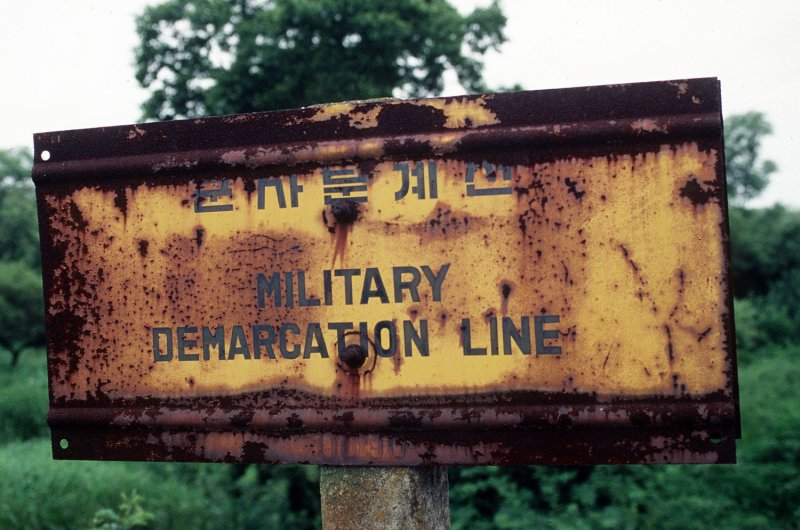PYONGYANG, North Korea, April 9 (UPI) -- North Korea, saying the Korean Peninsula situation is "inching close to a thermonuclear war," Tuesday asked foreigners in South Korea to be ready to evacuate.
White House spokesman Jay Carney called the statements "unhelpful."
The official Korean Central News Agency, carried by China's Xinhua News Agency, quoted a spokesman for the Korea Asia-Pacific Peace Committee as blaming the United States and South Korea for the escalating tensions on the peninsula and saying the situation "is inching close to a thermonuclear war."
The KCNA report, which was also carried by South Korea's Yonhap News, quoted the KAPPC spokesman as saying: "The committee informs all foreign institutions and enterprises and foreigners including tourists in Seoul and all other parts of South Korea that they are requested to take measures for shelter and evacuation in advance for their safety."
Yonhap said there are about 1.4 million foreigners in South Korea. The KAPPC was described as an organ of the North's Workers Party overseeing inter-Korean affairs.
"The United States and the South Korean puppet warmongers are now watching for a chance to start war against the DPRK [Democratic People's Republic of Korea, the official name for North Korea] after massively introducing weapons of mass destruction, including nuclear war hardware into South Korea," the KCNA said.
The spokesman the situation "is seriously affecting peace and security not only on the peninsula but in the rest of the Asia-Pacific," and North Korea "does not want to see foreigners in South Korea fall victim to the war."
At the daily press briefing in Washington, Carney called the North's statement "unhelpful rhetoric that serves only to escalate tensions."
"This kind of rhetoric will only further isolate North Korea from the international community and we continue to urge the North Korean leadership to heed President Obama's call to choose the path of peace and to come into compliance with its international obligations," Carney said. "We have seen this kind of bellicose rhetoric, these kinds of provocative statements consistently -- obviously, in recent days and weeks -- but also as part of a pattern of behavior that we've seen over the years from the North Korean leadership.
"The end result of this kind of behavior has only been to further isolate North Korea from the rest of the world and to do harm to the North Korean people. The North Korean leadership would be wiser to focus on developing its economy and assisting the North Korean people, who suffer under this kind of leadership that chooses development of missile programs and nuclear weapons rather than the feeding of its own people."
Last week, North Korea, whose escalating threats and provocations are raising concerns in the United States, South Korea and Japan, said the safety of foreign embassies in its capital cannot be guaranteed if tensions flared up.
The North has ratcheted up its verbal belligerence ever since the United Nations Security Council tightened its sanctions against the North for its third nuclear test in February. The isolated, impoverished Communist regime has also reacted strongly against the annual U.S.-South Korean joint military exercise currently under way. Its threats have included saying it would launch pre-emptive nuclear attacks against the United States and South Korea.
It has severed a military hotline with South Korea and banned the entry of South Korean workers and supplies into an inter-Korean industrial complex in the border town of Kaesong in the North, suspending operations there.
"Fueling tension has been a trademark tactic employed for decades by the North to deal with outside pressure against its bad behavior [to] win concessions," a South Korea government official told Yonhap.
There are concerns the North may also be preparing to launch a ballistic missile that could target U.S. bases in Guam.
CNN, reporting the latest threat, quoted a spokesman at the British Embassy in Seoul as saying: "Our travel advice remains unchanged. At this moment, we see no immediate threat to British citizens in South Korea."
In other developments Tuesday, the Japanese government announced it had deployed missile-defense systems around Tokyo to defend against any missile launch by the North.















